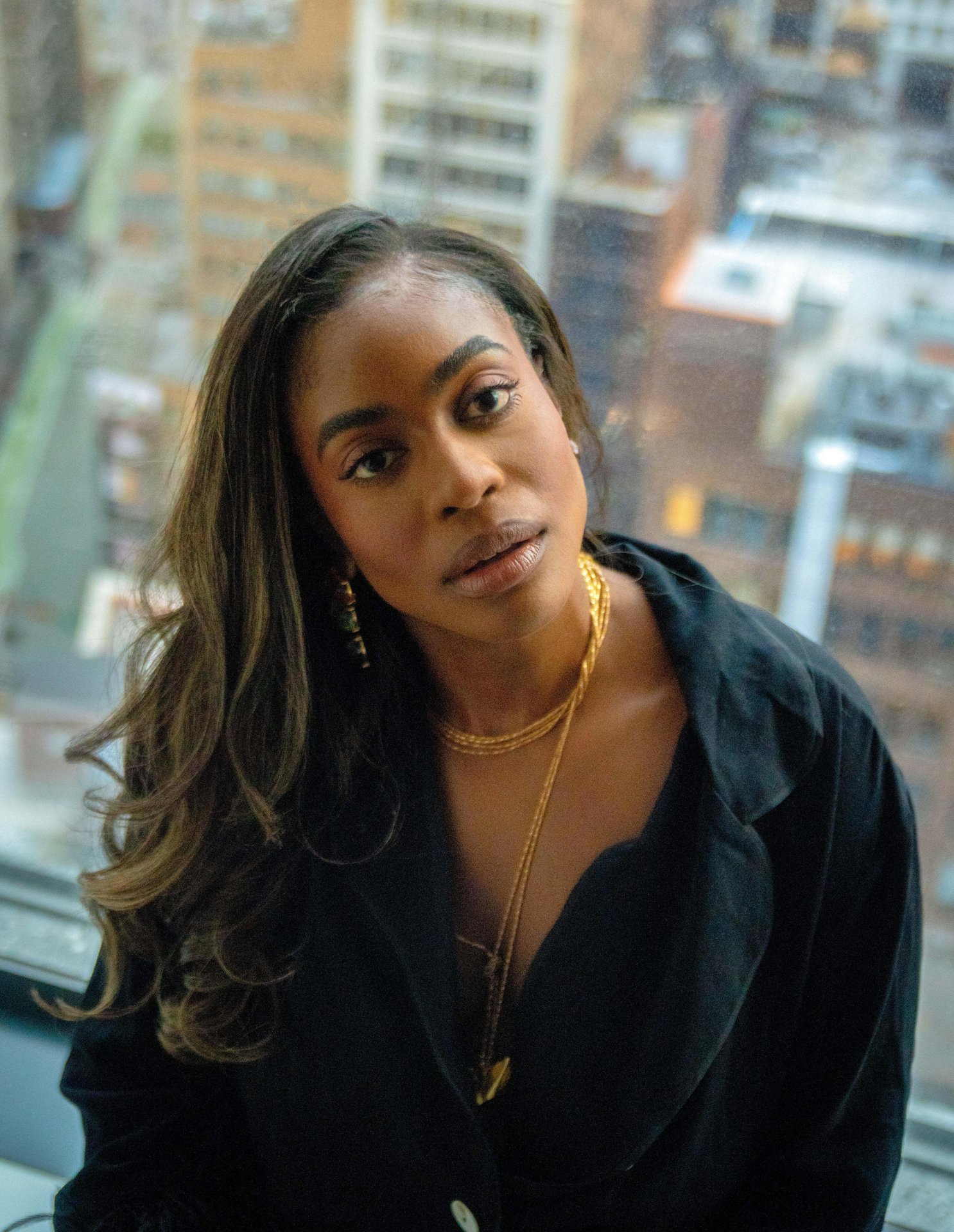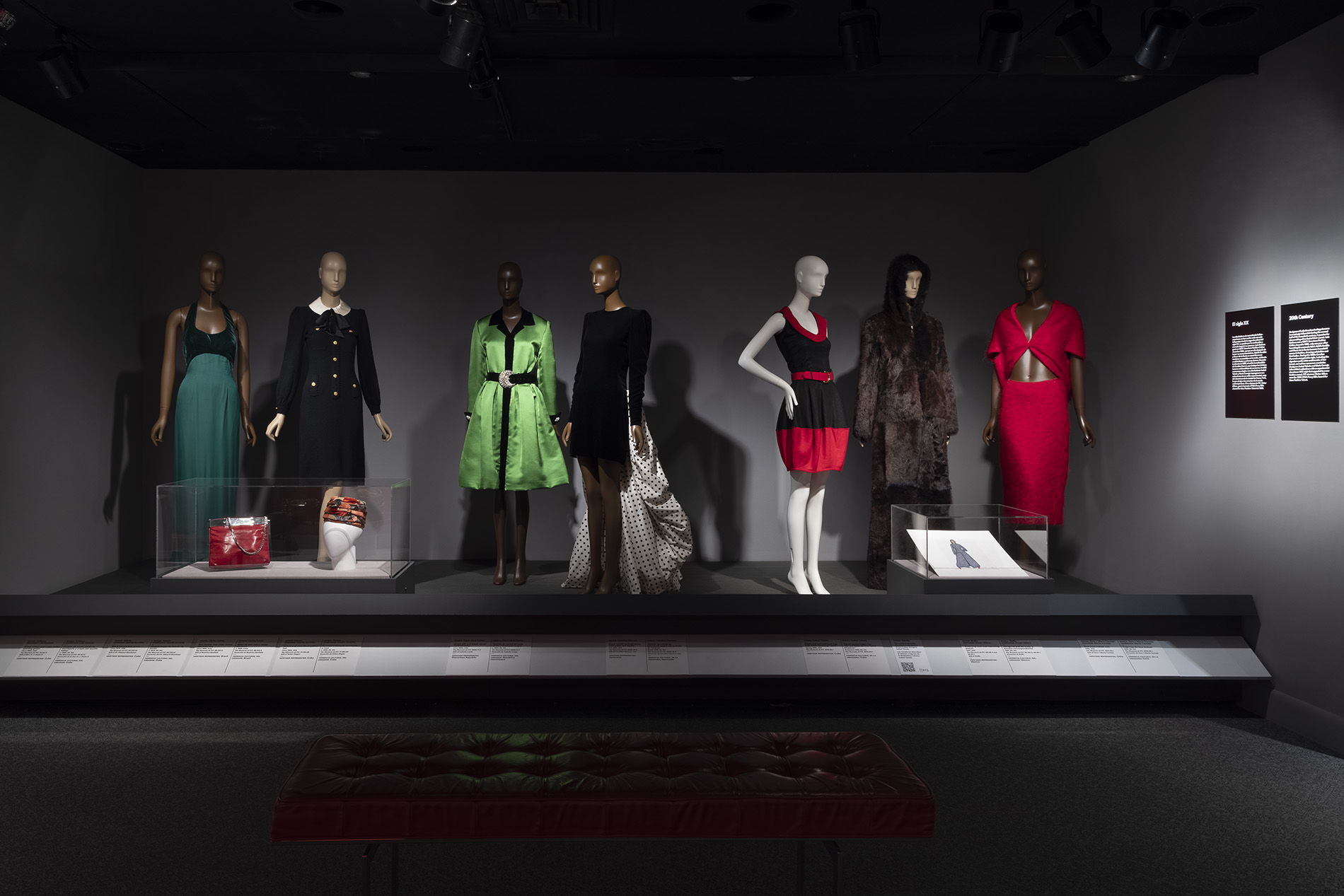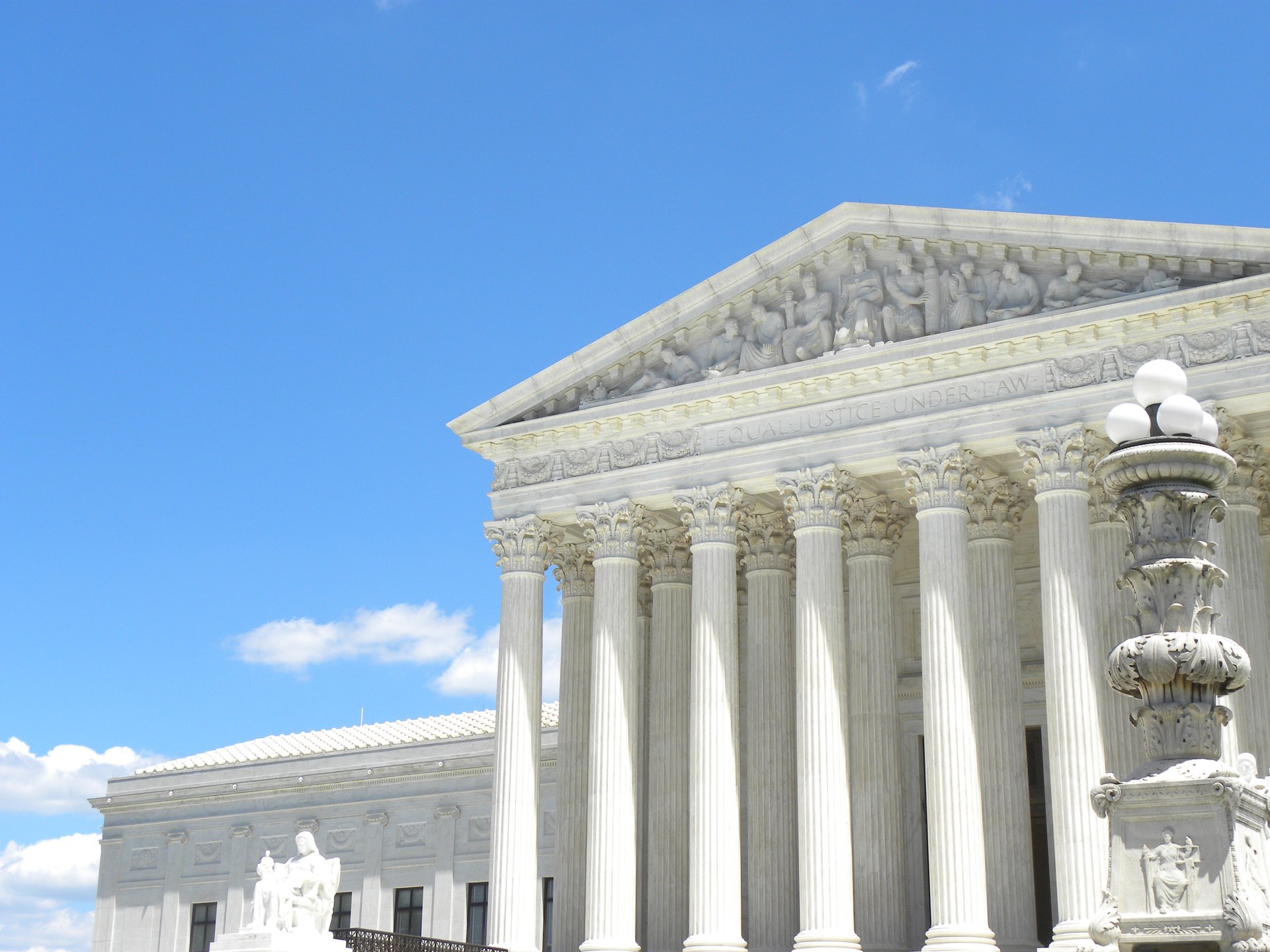Career Conversations: The Cut’s Beauty Director-at-Large Maya Allen
June 8, 2023
Rashad Benton


Before her time at Cosmopolitan, Marie Claire and InStyle, and even before joining Alpha Chapter’s Delta Sigma Theta, Inc. at Howard University, Maya Allen could be found playing the flute, practicing ballet, and nurturing her innate love of writing through collecting magazines and journaling in her hometown of Rose City.
At the time, Portland, Oregon was statistically one of the whitest states in America according to data from the 1990 census. Today individuals who identify as Black or African American still only make up 5.89 percent of the city’s population.
Her mother’s subscriptions to Ebony, JET, and Essence allowed them to bond and provided her fix of Black culture while growing up in the Pacific Northwest. During her junior year of high school, Self Enhancement Incorporated, a non-profit organization that her father was instrumental in creating for the community, helped her discover HBCUs by taking her and a group of others on a Historically Black College University school tour.
Life has changed since she made her way East, and her dreams of working for magazines materialized. After graduating summa cum laude from Howard University, Maya moved to New York to intern again (after a long list of impressive internships on her college resume) in InStyle’s beauty department with her mentor Kahlana Barfield Brown. She convinced her parents with a PowerPoint presentation that outlined how she’d make it in New York, even though she hadn’t secured a real job yet. She interned in the beauty closet for months and slept on an air mattress in her sorority sister’s spare room apartment. She hustled until she landed her first big-girl job as a beauty & fashion editorial assistant at Cosmopolitan.
Since then, she’s made a meaningful mark on the industry, beginning with helping launch “The Braid Up,” Cosmo’s first-ever Black hair show that she conceptualized and brought to life. In addition, Maya, who is well-known for sporting her signature red lip, has appeared in a global Target commercial and conducted interviews with beloved Angela Bassett, Ciara, Naomi Campbell, Nia Long, Pharrell and more. Last August, she became the beauty director-at-large of New York Mag’s The Cut, where she uses her position as a platform for creativity, activism, and discussing beauty beyond the surface. In her current role, she oversees all beauty coverage at the brand while also honing in on her own creative ventures, through branded campaigns, consultant projects, and building strategy.
In the following, we discuss her personal definition of beauty; Diahann Carroll, celebrity skincare lines, beauty standards—and that’s only the tip of the iceberg. Queue India Arie.
If we backtrack to 2009, what were you hoping to cover during your high school internship at the Oregonian Newspaper?
Ever since I was a little girl, I knew journalism was my chosen avenue of storytelling, and at the time, I wanted to get the foundation of it down first. I knew there was a lot of value in learning about where it all started, which is hard news reporting. My parents had the award-winning newspaper The Oregonian delivered to our front door daily. As a result, I jumped at the chance to gain a mentor and contribute to the paper. I knew it would be a great way to learn from a reporter and experience what it would be like to work in a newsroom. I innately knew I wanted to tackle style writing and magazines; I found it to be a more natural path than hard news reporting.
During your time at Howard University, what stories were you reporting on for The Hilltop Newspaper?
I knew going into my freshman year at Howard that I wanted to work as The Hilltop’s Life and Style editor, a highly sought-after position. As a result, I joined the National Association of Black Journalists (NABJ) Howard University Chapter. It was amazing being in a room brimming with like-minded journalists; we would travel to New York City each semester to meet with editors at the top of various magazine mastheads.
On campus, it allowed me to learn from other incredible journalists in the magazine who are still some of my good friends today; it also gave me my first printed byline, which was so fulfilling to see my name and feel like I had a voice. It felt like I was contributing to my campus in a bigger way beyond just my individual experience.
Historically speaking – beauty standards change every five to 10 years; though in today’s speedy world, it changes after every tweet, so I must ask, what is your definition of beauty?
My definition of beauty is being in a deep understanding of self. When I say that, I mean not being swayed by what people or society say are the perpetuated beauty standards we’ve been told our whole lives, but what we ourselves feel makes us the most beautiful. Beauty to me is something that comes from within and needs to be nurtured, nourished, and poured into. It is a piece of life. After going through that deep process and doing the work it will radiate and become this inner lightness – and confidence that can’t be duplicated because it is uniquely yours.

Image Courtesy of Maya Allen
I was recently watching this interview that Diahann Carroll gave Johnny Carson in 1979, and I was so mesmerized by her response; it was a different time, but basically, the topic was about women removing their makeup around men, and she said, “If he stays until 5 in the morning you stay absolutely perfect; some sort of makeup is nice throughout the day; fantasy is nice, and it helps us get through reality” Thoughts?
Wow, yes, historically women so often viewed makeup as a mask to make them feel more beautiful. Makeup, in my opinion, is merely an enhancement and meant to be experimented with. These products can have a transformative effect and serve as an excellent medium for creative expression. I’ve recently become more comfortable with my skin without any makeup; when I say recent, I mean last year. And that’s after intentionally focusing on my skin as this sacred ritual that is an act of radical self-love.
Beauty expectations and standards differ from culture to culture and generation to generation. So, if you had to pick a time when beauty was at its best and most respected, what would that be?
It is at best and most respected now. I say that because today, men and women including me who felt excluded from the mainstream beauty conversation no longer ask for permission. There’s no denying that Black people were the blueprint and original trendsetters. Beauty today is less about seeking approval and feeling like we need to fit in. Social media platforms like Instagram and TikTok are to be thanked for contributing to the democratization of beauty. This space is more representative and authentic because our voices in beauty can no longer be silenced.
What do you believe you are bringing to the beauty discussion that did not exist prior to your appointment as the beauty director-at-large at The Cut?
It’s been an honor to help push cultural conversations forward at The Cut with my amazing Editor-in-Chief Lindsay Peoples and the brilliant team I’m privileged to work with. Here, I have the freedom to edit, pitch, and publish honest stories that come from the heart. This work has never really been about me; the mission has always been bigger than me. If I continue to receive DM’s and emails from other women and writers who read my work who say, “I love that you had the courage to write about this subject,” or “I showed my daughter this article that you wrote about the natural hair and it made her feel so seen,” I’ve done my job. At the core of everything that I do, I always aim to amplify diversity and speak directly to my community of women.
Now to the products, what would you say is your signature fragrance?
I’m a fragrance fiend; because I have a large collection, choosing my favorite would be like choosing my favorite child, if I had any. I wear fragrance as an invisible accessory that reflects my mood. When I’m feeling flirty and spicy, I might reach for Byredo’s Vanille Antique, I’ve been loving Louis Vuitton’s Symphony for when I’m feeling at peace, and it’s a daytime vibe. The fragrance that means the most to me is Tom Ford’s Black Orchid because it was my mother’s go-to scent when I was a child; even when I was seven and eight years old, it made me feel expensive when I would sneak a spritz off her vanity. Angel by Mugler is also a very nostalgic scent for me that brings up a lot of childhood memories.

Image Courtesy of Maya Allen
Brands of makeup you feel are worth the money.
Dior makes outstanding complexion products that are shade inclusive; I love their concealer and Dior skin glow foundation. Pat McGrath is deserving of your money; first and foremost, she is the muva of makeup, so we should follow her advice and experiment with whatever she creates because she was one of the first renowned Black makeup artists to create such an incredible line. Tom Ford Beauty has a fantastic contour palette I often see backstage during runway shows and, in many supermodels, and makeup artist kits. And Giorgio Armani’s luminous silk foundation is huge because they’ve had shades for Black women before it was a thing; I’ve always been shade 13; it makes your skin look like a walking filter.
This may be controversial, but I want your thoughts on the celebrity skincare line world. Another celebrity releases one every six months. Is it that much variation to go around?
To be honest, I’m tired. However, know that when we are given exclusive interviews on these celebrity-founded lines, I am not afraid to ask them the tough questions. Because what are they doing differently to serve the community with this product? I believe beauty should come from an honest place because it’s consumer based. Although I am aware that it is a massive source of revenue for celebrities, consumers are significantly more savvy, inquisitive, and deliberate about the ingredients they consume, brand morals, and how they interact with beauty products.
If you want to be successful in this market, you need to offer something new. Now when we’re talking about brands that are doing it right obviously, I love Fenty Beauty, but I also love Selena Gomez’s Rare Beauty.
What do you think of the anti-aging industry and plastic surgery?
Personally, I support individual choice. If you have a deep desire to change, enhance, or tweak a feature on your face, more power to you. This decision should not be impacted or inspired by the media but rather your very own individual well-researched and well-intentioned choice. We should lift all the judgment off plastic surgery, cosmetic treatments, and aesthetic surgery. Personally, I have not received any invasive aesthetic treatments or surgery, but I have access to many incredible innovations that have helped my skin tremendously. Every month, I visit my dermatologist Dr. Michelle Henry for laser treatments on my face and thanks to my job, I get to frequently indulge in expensive facials.
I oppose the perpetuation of beauty standards that force women to perform such actions to feel beautiful. It’s a fine line, and you must have sound judgment.
Numerous Black women discuss Eurocentric beauty standards and the pressure to live up to them. Do you feel that way?
No, not anymore, but sadly, it is what was pushed to the forefront of our minds when we were younger, and it is very outdated. I was born in the early 1990s, when bone-straight hair and supermodel bodies were considered the standard of beauty, to say the least. Why should Black women believe we are the exception to the rules when we have set the standards? We are the blueprint, and we ought to move accordingly.

